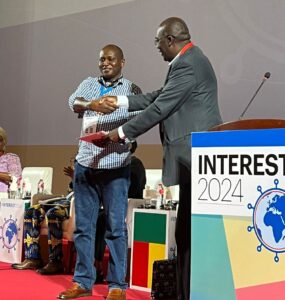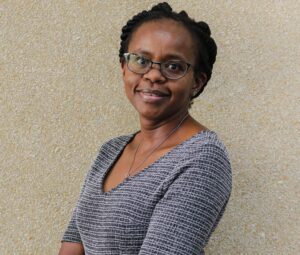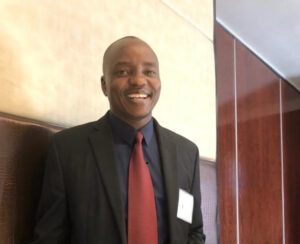Central to the training program for CARTA Fellows is a series of residential Joint Advanced Seminars (JAS), designed to enhance their skills and knowledge, guide and propel them through the research process, and provide a foundation for building networks of researchers, peers, and mentors.
This year, the Joint Advanced Seminar (JAS) 3 began on January 11th to 29th. The seminar focuses on data presentation, doctoral dissertation, scientific writing, and communication skills and aims to help the fellows interpret their data and present research findings. It also helps improve the fellows’ data analysis and scholarly writing skills and supports their capacity to write up their qualitative and or quantitative results concisely. Skills in prose, visual and tabular data presentation and understanding of the peer review and publication process is part of the seminar’s focus.
For facilitators like Sunday Adedini (Cohort One Graduate, Obafemi Awolowo University), the sessions have been exciting. “Facilitating in the on-going virtual CARTA JAS 3 comes with a lot of experiences and lessons. For instance, in his words, one of the fellows assigned to him remarked that “the statistical technique for my research – multilevel modeling, and my expectations from the JAS are similar to yours. I would have learned well from your experiences and expertise if I had met you three years ago,” he said.
The first week started with teaching sessions with two parallel sessions coordinated by CARTA graduates. The second week focused on data analysis, where fellows are paired with experts based on needs submitted in the Pre JAS form. The fellows also present their manuscripts to build their skills in the online conference presentation.
Lebogang Maseko, one of the participating fellows, said that he was quite anxious when going to the JAS 3. “However, having participated in it, I have gained clarity into my data, and my confidence has been restored. The facilitators have challenged my thinking and presented various perspectives of addressing the data analysis in ways that I may not necessarily have thought of or lacked the skill to do. They have given of their time and expertise, even outside the scheduled times, and have assisted and guided me to look deeper into my data analysis and my manuscript,” he said.
Lebogang feels that the seminar has been a fruitful experience that will add value to his PhD journey. “With all this input and guidance, I am assured that my final output will be of good quality,” he said.
The JAS 3 Residential sessions will begin on February 15-27, 2021. Fellows will be accommodated at a common facility in their home countries. The residential stay is meant to minimize exposure during international travel and maximize protected time for fellows to advance their PhD protocols.




